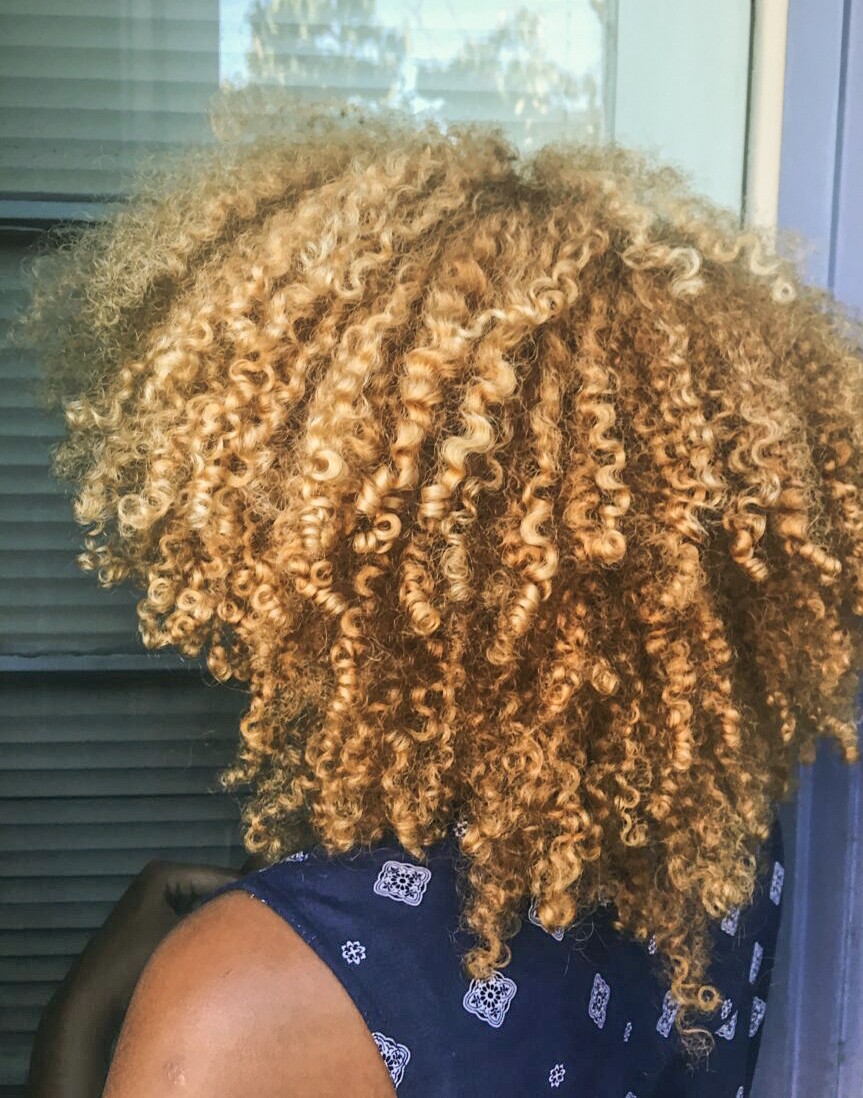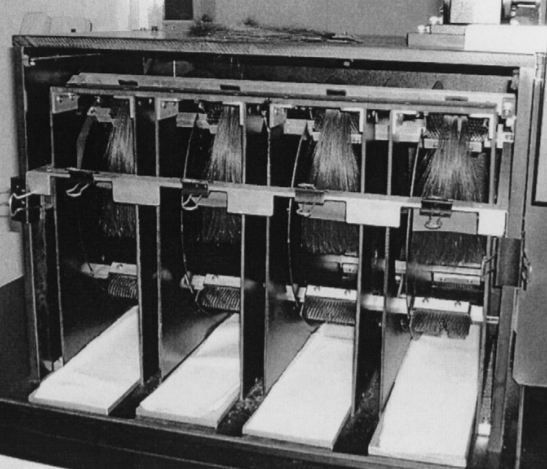This answer is a bit complicated because both brushes and combs can cause damage to hair. The trick is to not only figure out which causes less damage for you, but also to modify your brushing/combing habits to be more gentle.
How brushes and combs create damage while detangling
All brushes and combs have individual bristles. When hairs become wrapped around bristles, they create resistance, making it harder to pull the brush or comb through hair.
In response, the person brushing or combing will usually just try to yank the brush/comb through - a big hair-health no-no.
While yanking the brush/comb through might seem like an effective detangling strategy because this feeling of resistance goes away, roughly pulling doesn't actually unknot the hairs wrapped around the bristles. Instead, the tangled hairs are broken off or ripped out of the scalp.
If your goal is just to get all the knots out of your hair quickly, rapid combing/brushing can do the job. But a decent bit of breakage will probably happen as well. This is why it's important to find a comb or a brush that won't make you feel like you have to, quite literally, pull your hair out while untangling.

@liveclothesminded
Which causes more damage -- a brush or a comb?
Unfortunately, there's not a ton of publicly available, hard scientific evidence on if, as a whole, combs or brushes are better for hair health.
It's well documented that brushing and combing can both be bad for hair, because of the tangling and ripping described above. In fact, it's so common that hair brushing is regularly used to test new damage prevention hair products -- if, after brushing, a hair sample that was treated with a product sustained less damage than a hair sample that wasn't treated, the product has proven some efficacy in preventing damage.
But direct comparisons between brushes and combs are extremely uncommon. This might be because it's nearly impossible to perform a double-blinded controlled trial with different grooming instruments -- you could probably tell which is the brush and which is the comb through touch alone.
We were able to find only one study, from 2007, that directly compared the effects of brushes and combs on hair breakage. Brushes were more likely to break off long strands of hair, while combs were more likely to break off short strands of hair. The researchers believed that this was because of the layout of bristles.
Not all brushes and combs are created equal
Now that we've established that both brushes and combs can cause damage, how can you find a good one that will work better?
According to unpublished Princeton Data, brushes and combs with more space in between their bristles may be less likely to create tangles and tears. If you are in the market for a less damaging brush or comb, a model with widely-spaced bristles may be a good choice for you.

@taymarando
If you're using a comb or a brush with sharp or broken bristles, it's also probably time to upgrade. Sharp edges can lacerate delicate hair strands, potentially leaving you with uneven ends.
Trichologist (a dermatologist who specializes in hair) Anabel Kingsley recommends that consumers specifically avoid metal combs and boar bristle brushes. "Metal prongs can get too hot when heat styling and burn the outer hair cuticle and scratch the scalp. Boar bristle brushes are similarly menacing as they easily tear away sections of the hair cuticle and the cuticle is very important."
Listen to your own experiences
Because everyone's hair is so different and we don't have hard scientific evidence for every comb or brush on the market, your own experience might be a pretty good indicator of if a certain brush or a comb is better for you. Try several out, pay attention, and see how they feel.
If you find that using a certain brush or comb, in particular, prompts you to groom your hair more gently, that's a pretty solid sign that you should stick with it. The same goes for if you find a brush or a comb that goes through your hair without a great deal of resistance.
It's not often that you find a comb or a brush that goes through your hair like butter -- if you're ever lucky enough to find one, be sure to treasure it.
The most important part of brushing/combing is being gentle
Ultimately, the strategies you use to detangle your hair may be more important than the tools you use to do it. Regardless of if you choose a comb or a brush, research has shown that being gentle while styling is key to preventing damage. If a knot is being tricky and refusing to come out, you may want to try gently detangling it with your fingers instead.
Shampoo and Conditioner can improve your combing/brushing routine
Speaking of being gentle to hair while brushing, the products you use in the shower can improve your hair-brushing results. There haven't been many studies examining the damage performed by brushing/combing, but a 2010 study from the Journal of The Society of Cosmetic Chemists found that caucasian hair treated with conditioner withstood brushing breakage 60% better than caucasian hair that was treated with no conditioner.

Also -- this is a picture of the machine used in the study to measure the rates of hair breakage. It was custom built for the researchers -- cool, no?
The study didn't elaborate on which conditioner was used or include the ingredients that were used in the conditioner, which is, of course, a tad disappointing. The only description of the conditioner in the study is that it was "commercially available" at the time the study was performed, so we imagine it was a pretty generic, off the shelf product.
We've spoken before on this blog about the benefits of regularly conditioning your hair and how common conditioner ingredients, like silicones, are really helpful for your hair. If you'd like to learn more about conditioner's many benefits for hair health, we recommend that you check out those articles.
Longing for more hair science? Here's what we recommend you read next:
What you need to know about Mineral Oil
Mineral oil: you've got questions, and we've got answers 👍
How Long Does It Take for Hair To Grow Back?
How long does it take for hair to grow back after a bad cut?
How much shampoo to use? Probably less than you think.
We've all been shampooing wrong this WHOLE TIME.





